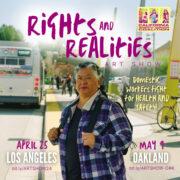THERE are many myths and misconceptions about immigration law, which are simply not true. People may receive “advice” from consultants, or well-meaning friends or relatives, which is wrong. Following these myths, misconceptions and advice could have devastating effects on a person’s immigration case or result in years of delays. Here are some of the more common misconceptions I’ve encountered among Filipinos:
• Green card holders cannot petition family members; only U.S. citizens can. This is false. Green card holders can petition their spouse and unmarried children, whether the children are under or over 21 years of age. There are cases where a green card holder could have petitioned a spouse or unmarried child years ago, but waited until they naturalized, under the false belief they had to be a citizen to petition those family members. In the meantime, years are wasted or the child may have “aged out” (turned 21 years of age), resulting in the child having to wait many more years to immigrate.
• It is faster to wait to become a U.S. citizen, and then petition a spouse or minor child. This is untrue. In most cases, it would be faster to petition a spouse or minor child while the person is still a green card holder. Think about the timing: right now, it takes about two years for a green card holder to petition a spouse or minor child in the F-2A category. However, if the person waits to become a U.S. citizen, they have to first be a green card holder for five years, then it takes about another year to naturalize, and another year after that to process the family petition. That’s about seven years. Even if you are a year or so away from naturalization, you can still file the petitions, and then once you naturalize, you can “upgrade” the petitions. But at least you have the petitions on file and moving forward while you are a green card holder, and your family may be eligible for green cards before your naturalization is completed.
• My U.S. citizen child can petition me when he’s 18 years old. This is false. A U.S. citizen child must be at least 21 years old to petition a parent.
• My U.S. citizen husband can petition my child (his step-child) if we get married and he files a petition before my child’s 21st birthday. This is partially true. In order for a U.S. citizen to petition a child (whether biological child or step-child), the petition must be filed before the child’s 21st birthday. However, in the case of petitioning a step-child, the marriage to the U.S. citizen step-parent must take place before the child’s 18th birthday. Therefore, in order for your husband to be able to petition your child, your marriage should have taken place before your child’s 18th birthday, and the petition should be filed before your child’s 21st birthday.
• I don’t have to work for my petitioning employer once I get my green card. This is false. If a person is being petition by an employer, USCIS expects the person to work for the employer for a reasonable period of time after they get their green card. Of course, if a person gets a green card through labor certification, they are not required to work for the employer “for life.” However, if a person never worked for the employer, stop working for the employer before being granting a green card, or quit the day after obtaining their green card, it could create issues or problems for them in the future, especially when filing for naturalization. Whenever a person obtains a green card through employment, one of the first questions asked at a naturalization interview is how long the person worked for the sponsoring employer AFTER they obtained their green card, and they may be required to produce pay stubs and tax returns proving it. If you never worked for the employer or quit before getting a green card, etc., the immigration officer may be suspicious it was a “job of convenience” (just like marriages of convenience), and could quite possibly conclude the job offer was bogus or fake. USCIS could deny your citizenship application, and quite possibly question the legitimacy of your green card.
The forgoing are just a few myths and misconceptions I’ve encountered. In future articles I will discuss more.n
* * *
Michael J. Gurfinkel is licensed, and an active member of the State Bar of California and New York. All immigration services are provided by, or under the supervision of, an active member of the State Bar of California. Each case is different. The information contained herein including testimonials, “Success Stories,” endorsements and re-enactments) is of a general nature, and is not intended to apply to any particular case, and does not constitute a prediction, warranty, guarantee or legal advice regarding the outcome of your legal matter. No attorney-client relationship is, or shall be, established with any reader.
WEBSITE: www.gurfinkel.com
Call Toll free to schedule a consultation for anywhere in the US:
(866)—GURFINKEL
Four offices to serve you: LOS ANGELES · SAN FRANCISCO · NEW YORK · PHILIPPINES




